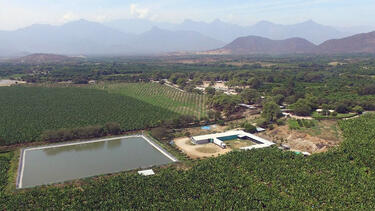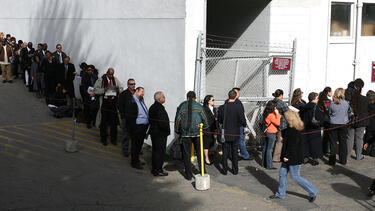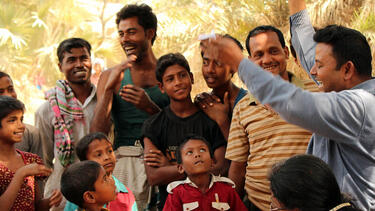Economic Development
Can Industrial Policy Help Revive Struggling Regions?
A new paper co-authored by Yale SOM’s Cameron LaPoint looks at an effort in 1980s Japan to narrow economic inequalities between geographic regions, in order to understand the potential impact of the similar U.S. CHIPS and Science Act, enacted in 2022.

Study Leverages Peer Effects to Encourage Adoption of Hygienic Latrines
Consumers often aren’t willing to take a chance on a new product until their neighbors do. A new study investigated the use of targeted subsidies that leveraged such "peer effects" to spark adoption of hygienic latrines, which reduce the spread of pathogens.

The Roots of America’s Exceptional Inequality
Yale political scientist Jacob Hacker joined Yale SOM’s Global Leadership: Big Issues course to discuss the tax, policy, and political forces that have disproportionately benefited the richest Americans—and caused many to feel left behind.

- Collection No. 4
Building Hope in Appalachian Ohio
In southeastern Ohio, diverse efforts to build vibrant communities and a new economy show real promise. Can they create the momentum to overcome a legacy of poverty and underinvestment?

Can Appalachian Ohio Build a New Economy?
The 32 Ohio counties spread over the Appalachian foothills suffer in comparison with their counterparts in the rest of the state by nearly every economic measure. But they’re also filled with entrepreneurs, philanthropists, and citizens seeking to build a brighter future.

Perspective: The Federal Agency
What’s the role of the federal government in addressing the challenges facing Appalachian Ohio? Ray Daffner ’86 discusses the work of the Appalachian Regional Commission.

What Will It Cost to Rebuild Canada’s Infrastructure?
Amarjeet Sohi, Canada’s first-ever minister of infrastructure and communities, discusses the country’s plan to sharply increase public and private investment in infrastructure.

Can a Farming Startup Help End Extreme Poverty?
Smallholder farms in developing countries haven’t benefited from the tech revolution. Can a startup offer a private-sector solution to extreme poverty?

How Can We Create an Economics of Hope?
Entrenched inequality is creating a sense of despair for many Americans. Andrea Levere ’83 discusses policies and programs that help more people find opportunities for hope.

How Do You Build Effective Public-Private Partnerships?
The World Bank’s Isabel Marques de Sá explains how these enormously complex contracts can be tools for innovation and capacity building.

The Nobel Prize in Economics and the Dangers of Foreign Aid
Professor A. Mushfiq Mobarak argues that claims about the impact of foreign aid should be tested with careful empirical study.

